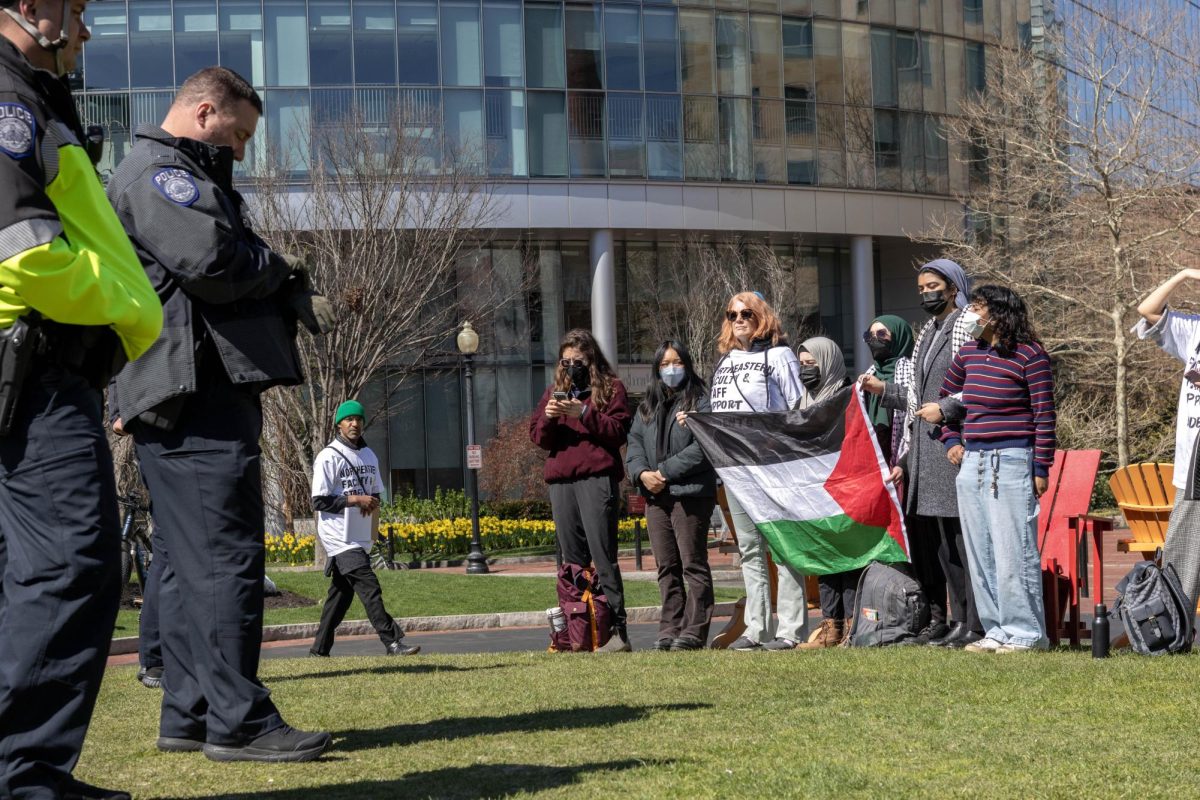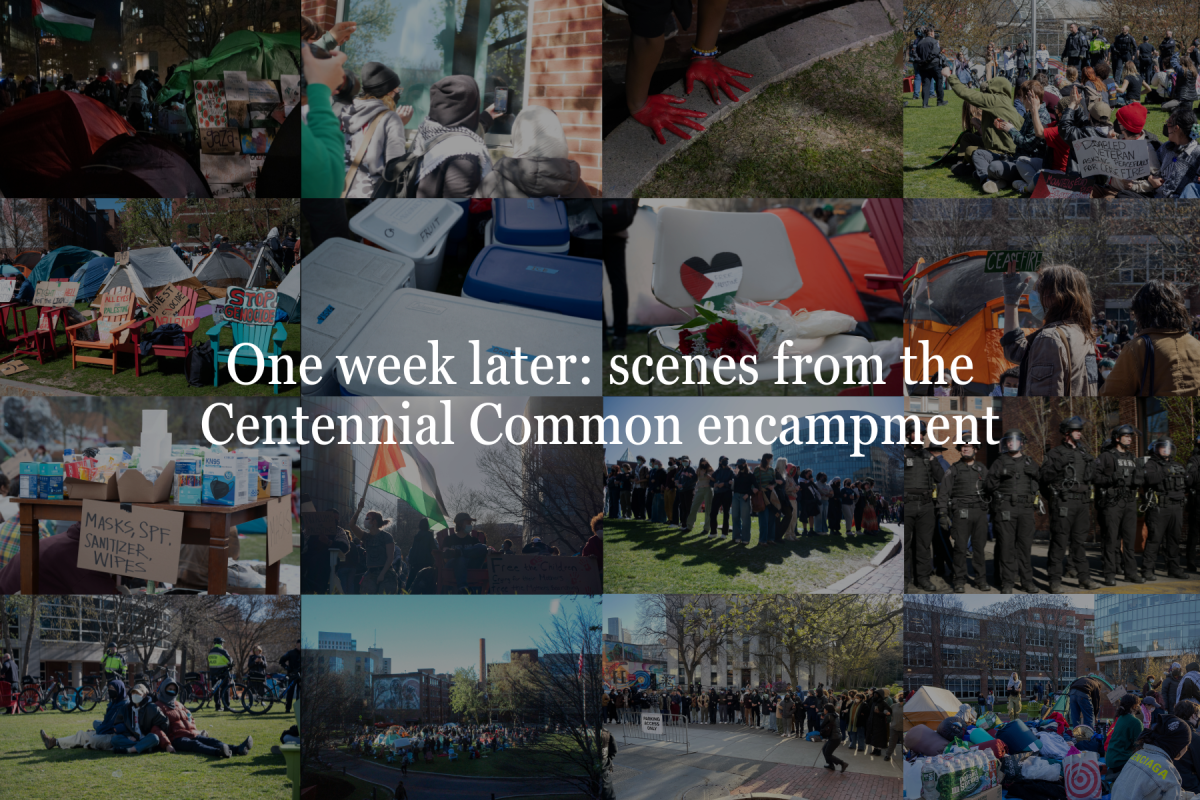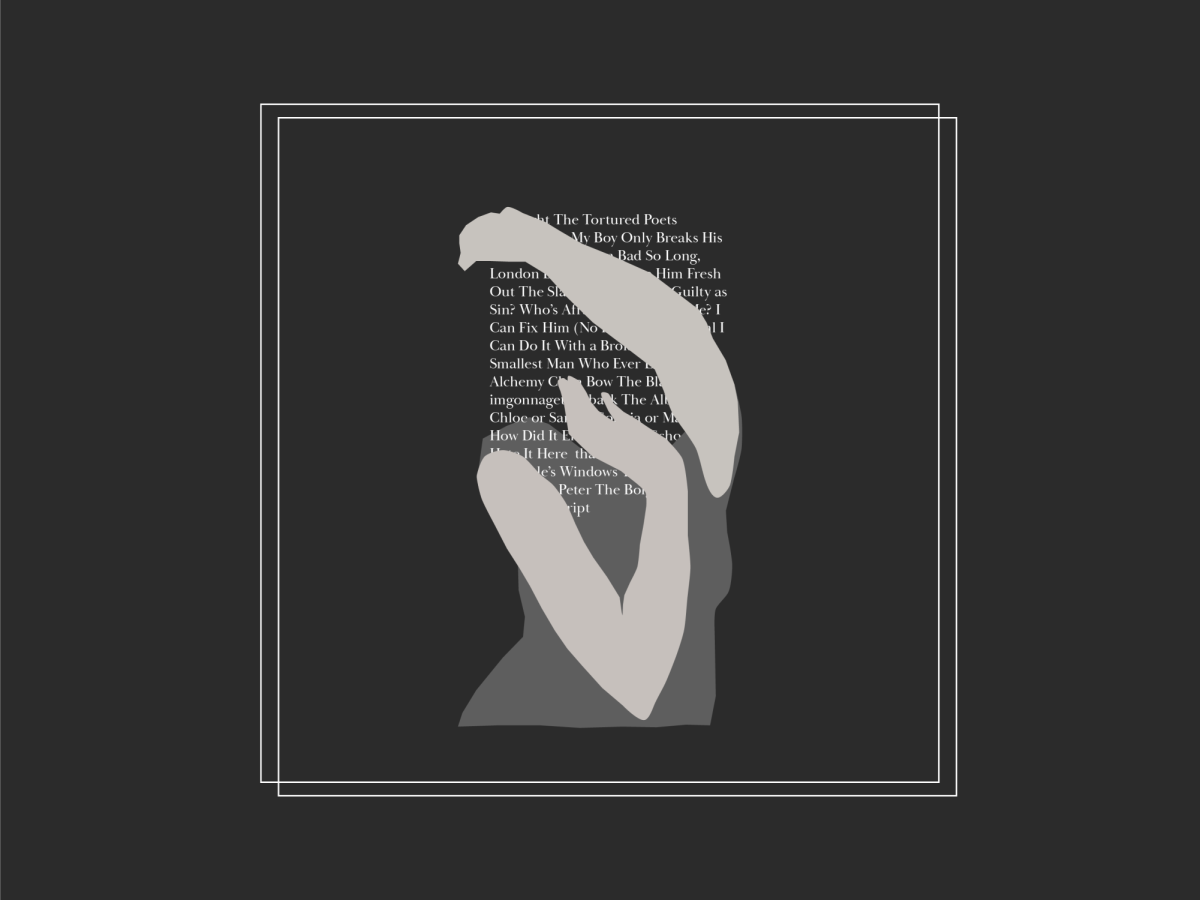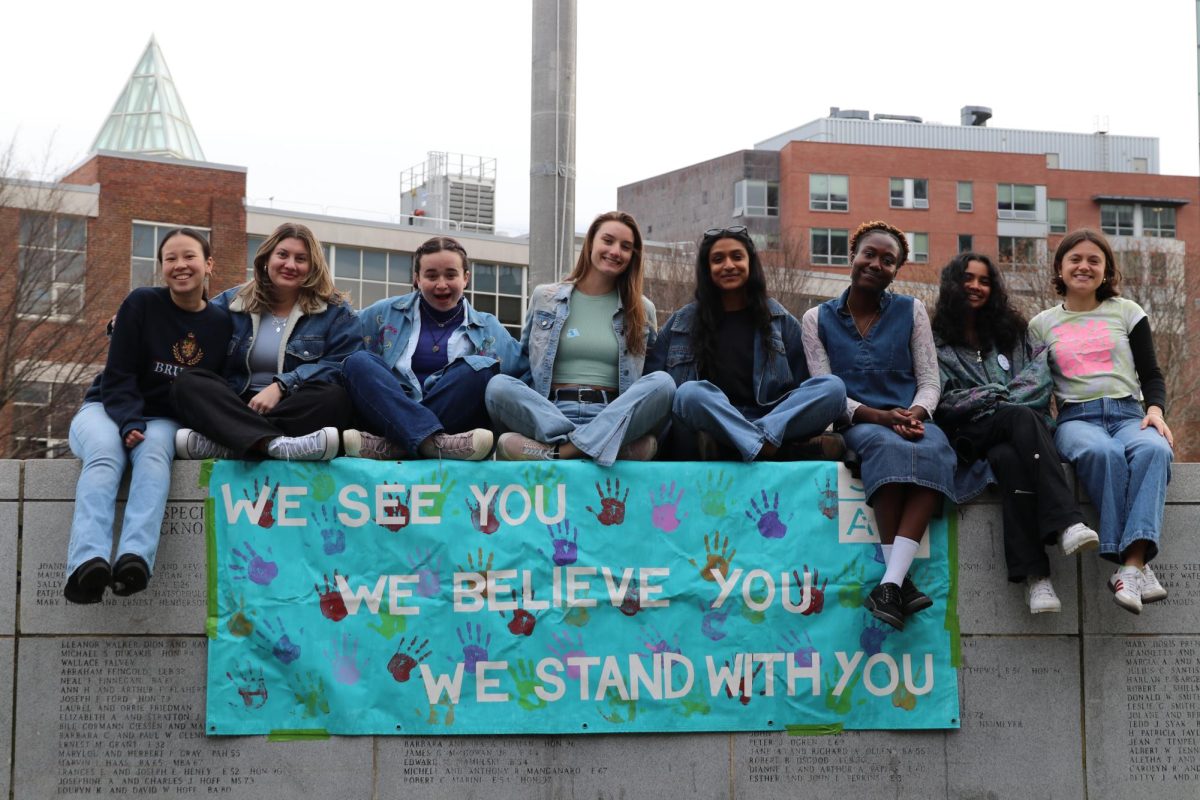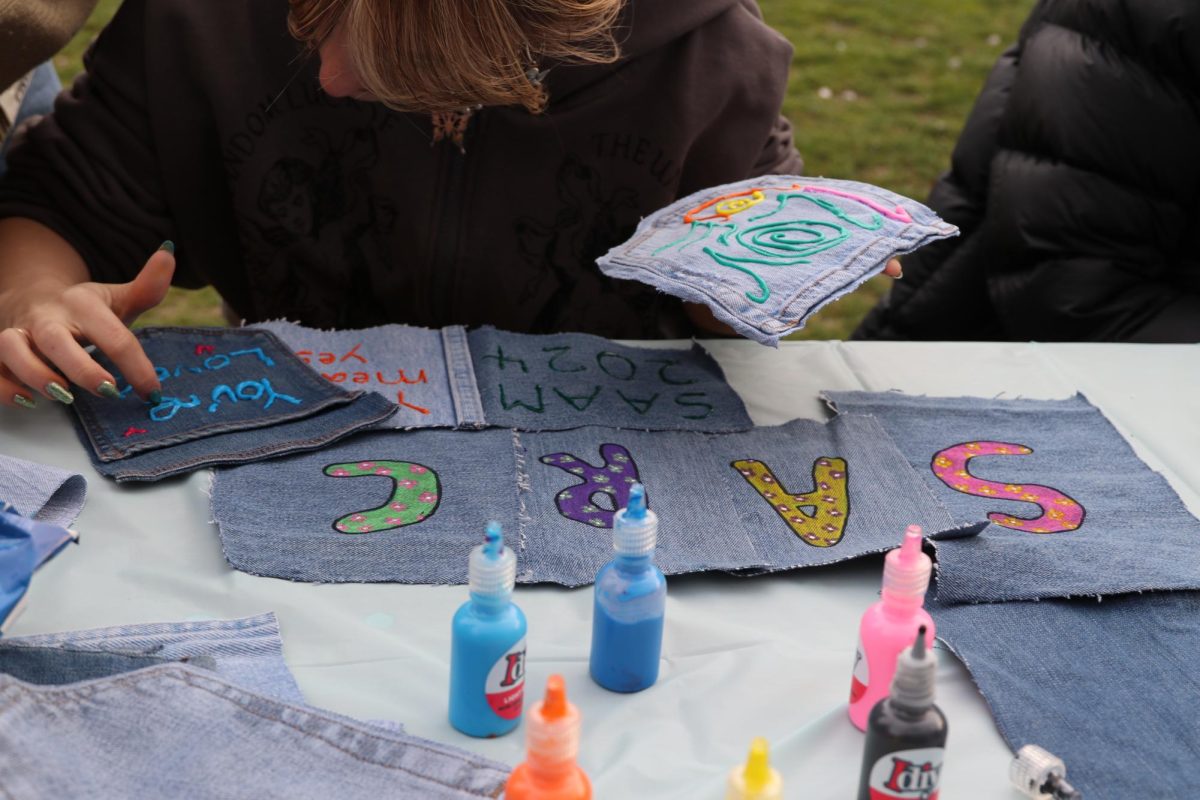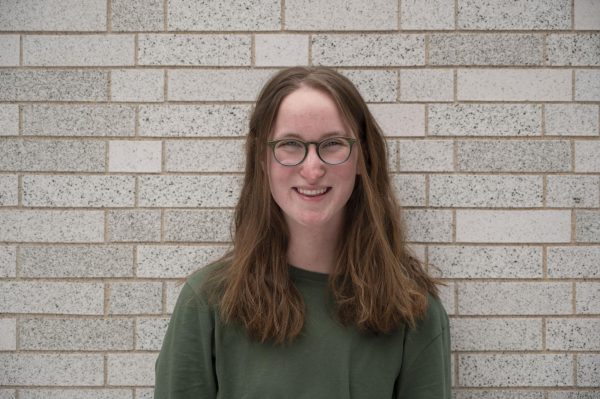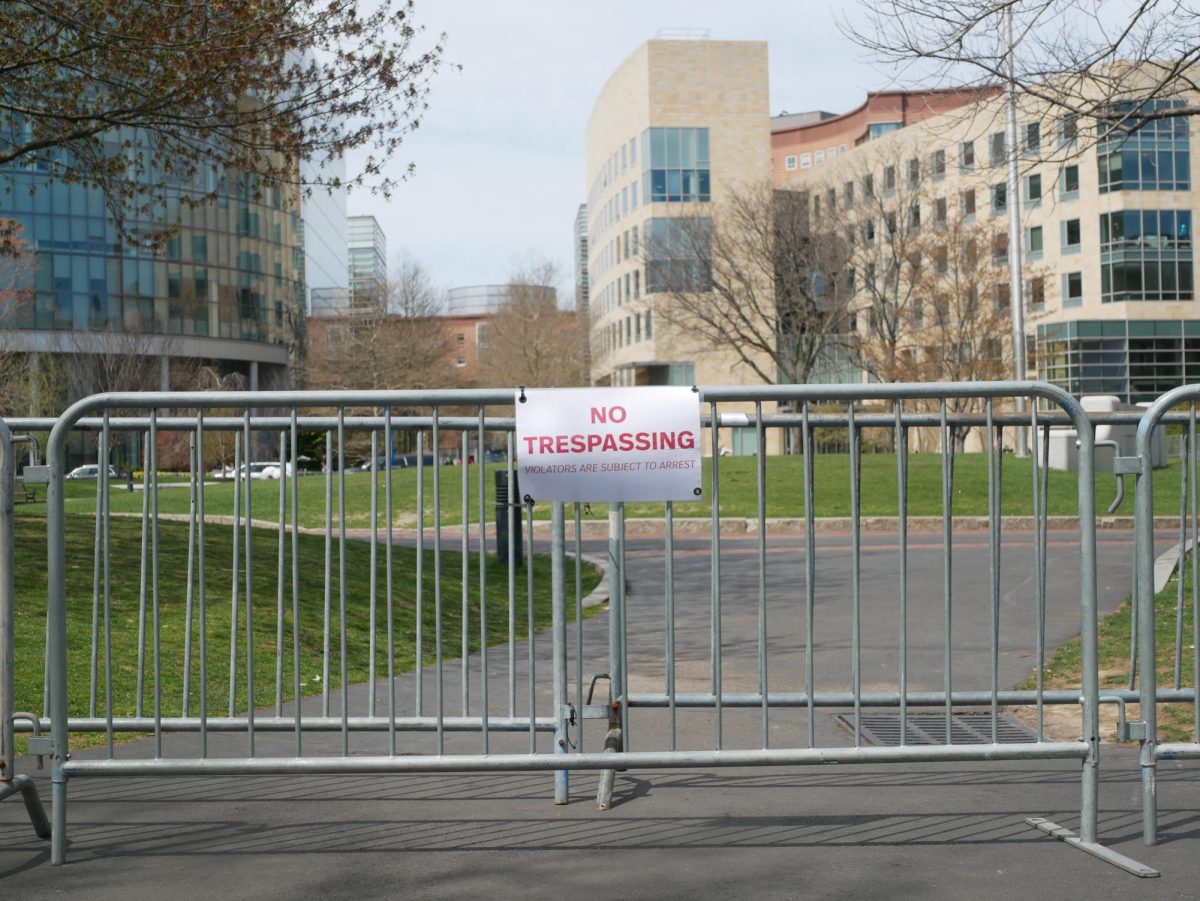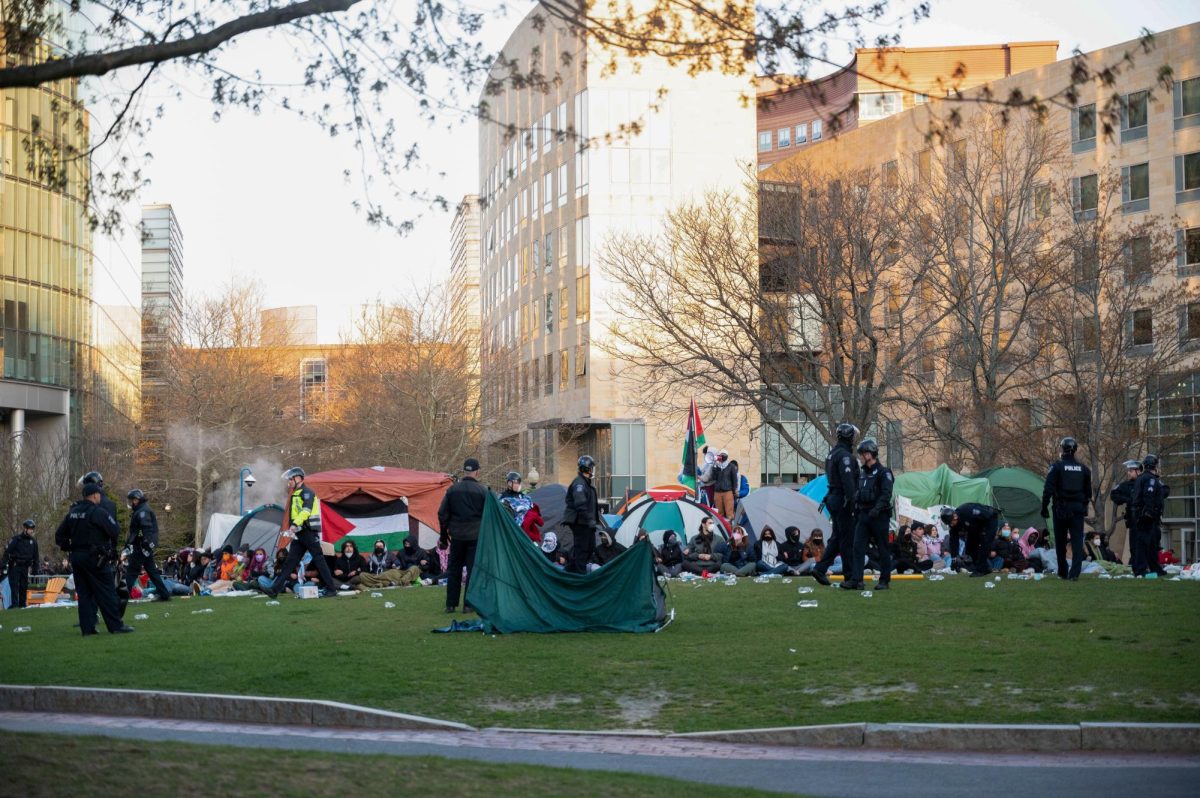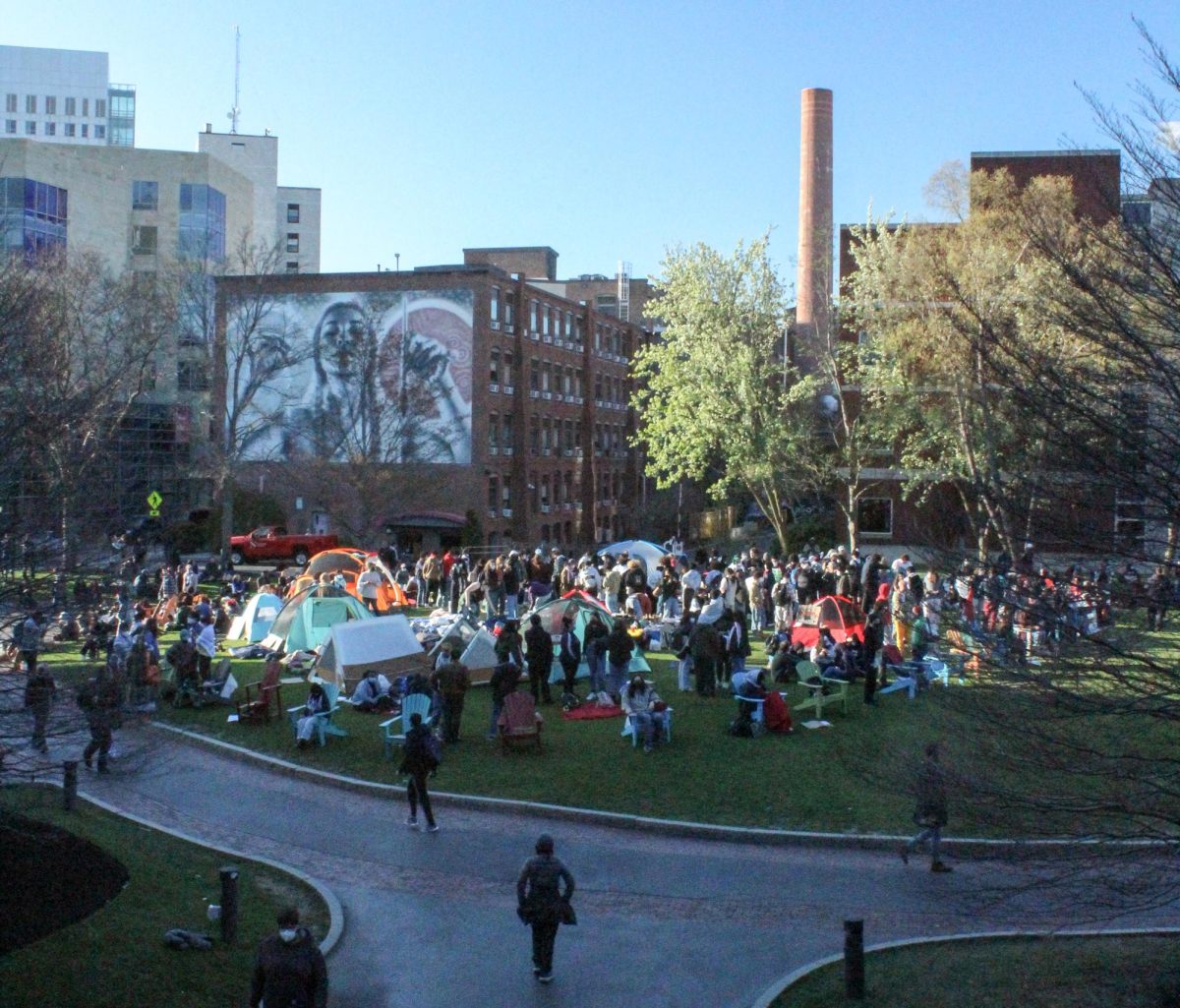At Northeastern’s “Take Back the Night” event April 17, survivors, allies and sexual assault prevention advocates gathered on Centennial Common to show support for one another as part of a worldwide movement to put an end to sexual violence.
Put on by the Northeastern Sexual Assault Response Coalition, or SARC, attendees engaged in a variety of arts and crafts, including friendship bracelet making and painting denim with supportive statements, and capped the night off with survivors sharing their stories and hanging up a denim mural — a symbol for sexual violence awareness and prevention.
Take Back the Night dates back to 1877 England, when women gathered to protest the violence they experienced when walking alone at night. The event debuted in the United States a century later when women in San Francisco protested violence against women, notably sexual assault. This is the first time student-run SARC hosted the event since the group’s founding in 2014.
Northeastern’s rendition of Take Back the Night has been an idea for at least the past four years, said SARC Co-President Sage Shumate, a fourth-year criminal justice and psychology combined major. Leaders of the organization originally got the idea through collaborations with neighboring colleges, especially during April, which is Sexual Assault Awareness Month, Shumate said. Last April, Northeastern’s SARC tabled at an event held by It’s On Us, a similar group advocating for the end of sexual assault, at Boston University.
Many sexual assault awareness events held by Boston schools involve collaboration with multiple other universities and community organizations, Shumate said.
“I think it’s really important for survivors to be able to find people that aren’t just at Northeastern,” she said. “Finding people that go to other universities and finding people that just exist in the Boston area generally is really important because, once again, it’s not an isolated issue. … It’s nice to be able to create a larger community and keep building that support network.”
The main aim of SARC is to help direct students to resources. For this reason, Shumate said she and other members are familiar with Title IX policies of many Boston schools.
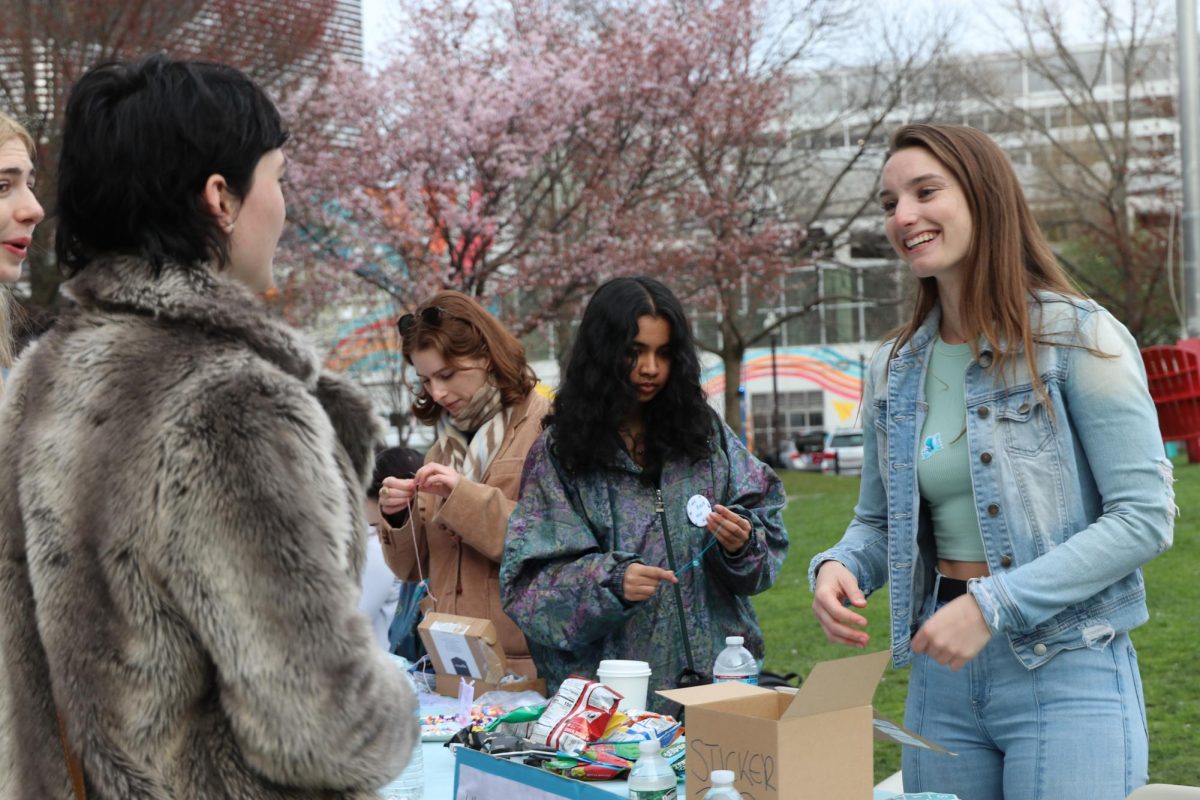
SARC also works in conjunction with Northeastern organizations like the Title IX office and the Office of Prevention and Education, or OPEN, said Alexa Grayson, a fourth-year human services and international affairs combined major and president of outreach for SARC. This entails biweekly meetings with the Office for University Equity and Compliance and consistent collaboration with OPEN, Grayson said.
In fall 2023, Northeastern conducted its ninth annual Sexual and Gender-Based Harassment survey. According to the data published April 2, 17.9% of survey respondents reported “experiencing sexual touching without their consent.” Moreover, 6.8% said they experienced sexual penetration or oral sex without their consent since they have been a student at Northeastern.
In a statement to The News April 6, Northeastern said OPEN and the Office for University Equity and Compliance “works closely with Residential Life staff to provide ongoing training for Resident Assistants and professional staff on how to appropriately respond if they learn about an incident of sexual violence.” The statement said that the school provides “targeted interventions” for repeated incidents in particular locations.
First-year Trinity Forgét, a criminal justice and psychology combined major and co-president of survivor support for SARC, said SARC gives her opportunities for advocacy she never got in her home state of Florida, where she said there was no “talk about sexual assault or sexual violence of any kind.”
“Having spaces like this where survivors can come together and just feel finally safe in the space is so important,” Forgét said. “I feel like when I was in Florida, I was always looking behind my back. And, yes, I feel like that’s still the case here. But doing this event where we’re able to walk at night is so cool because that’s something you are not able to do and feel comfortable with without the support and show up of all these other individuals who you know are in your corner and you know are there to protect you.”
Another mission of SARC is to dispel the persistent stigma surrounding sexual assault, Grayson said.
“There’s a stigma around one’s experiences and someone may be feeling ashamed or someone feeling like no one would believe them or no one would support them,” she said. “When, in reality, there’s a whole community that is coming together to just say, ‘We support you. We hear you. And you are valid.’”
The presence of a physical community is an opportunity to heal for survivors, said Halimat Olunlade, a fourth-year ecology and evolutionary biology major and the SARC communications chair.
“I think it’s very important to build that physical community because a lot of the bigger implications of sexual assault is the isolation that survivors feel,” Olunlade said. “It’s one thing to say you’re not alone and to spread that messaging around. And it’s another thing to fill up a space with people who all have that goal of making a survivor feel seen and heard.”


